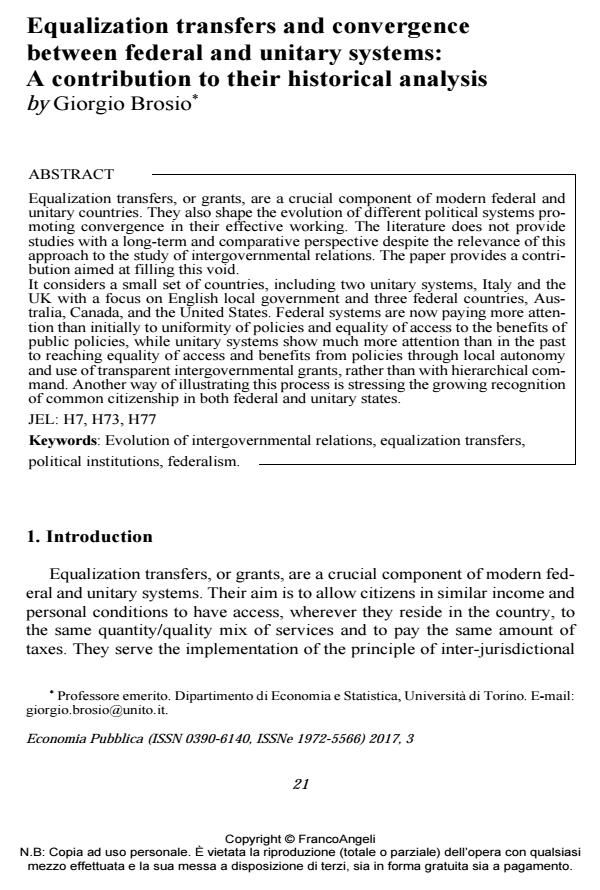Equalization transfers and convergence between federal and unitary systems: A contribution to their historical analysis
Journal title ECONOMIA PUBBLICA
Author/s Giorgio Brosio
Publishing Year 2018 Issue 2017/3
Language English Pages 46 P. 21-66 File size 346 KB
DOI 10.3280/EP2017-003002
DOI is like a bar code for intellectual property: to have more infomation
click here
Below, you can see the article first page
If you want to buy this article in PDF format, you can do it, following the instructions to buy download credits

FrancoAngeli is member of Publishers International Linking Association, Inc (PILA), a not-for-profit association which run the CrossRef service enabling links to and from online scholarly content.
Equalization transfers, or grants, are a crucial component of modern federal and unitary countries. They also shape the evolution of different political systems promoting convergence in their effective working. The literature does not provide studies with a long-term and comparative perspective despite the relevance of this approach to the study of intergovernmental relations. The paper provides a contribution aimed at filling this void. It considers a small set of countries, including two unitary systems, Italy and the UK with a focus on English local government and three federal countries, Australia, Canada, and the United States. Federal systems are now paying more attention than initially to uniformity of policies and equality of access to the benefits of public policies, while unitary systems show much more attention than in the past to reaching equality of access and benefits from policies through local autonomy and use of transparent intergovernmental grants, rather than with hierarchical command. Another way of illustrating this process is stressing the growing recognition of common citizenship in both federal and unitary states.
Keywords: Evolution of intergovernmental relations, equalization transfers, political institutions, federalism.
Jel codes: H7, H73, H77
Giorgio Brosio, Equalization transfers and convergence between federal and unitary systems: A contribution to their historical analysis in "ECONOMIA PUBBLICA " 3/2017, pp 21-66, DOI: 10.3280/EP2017-003002